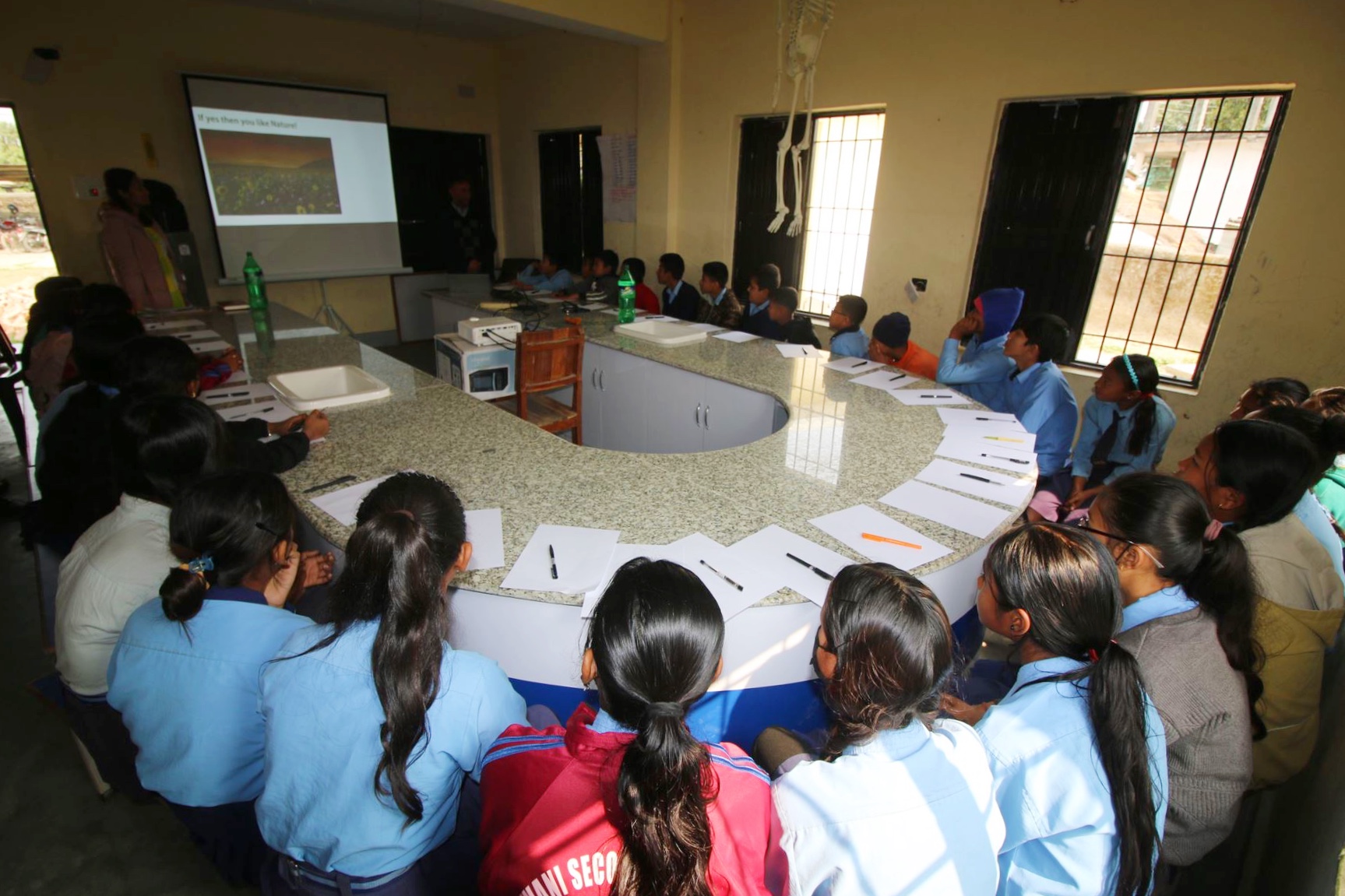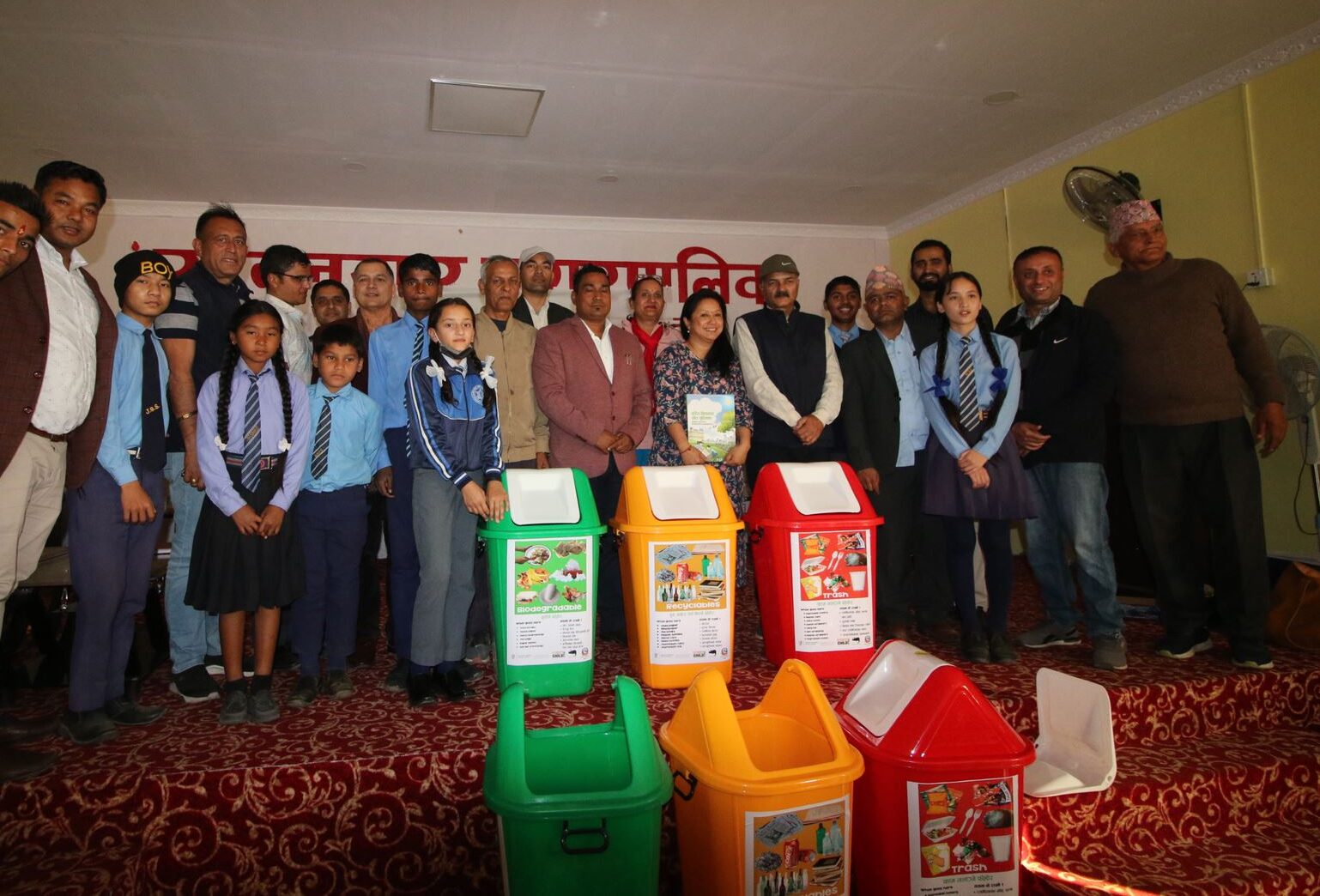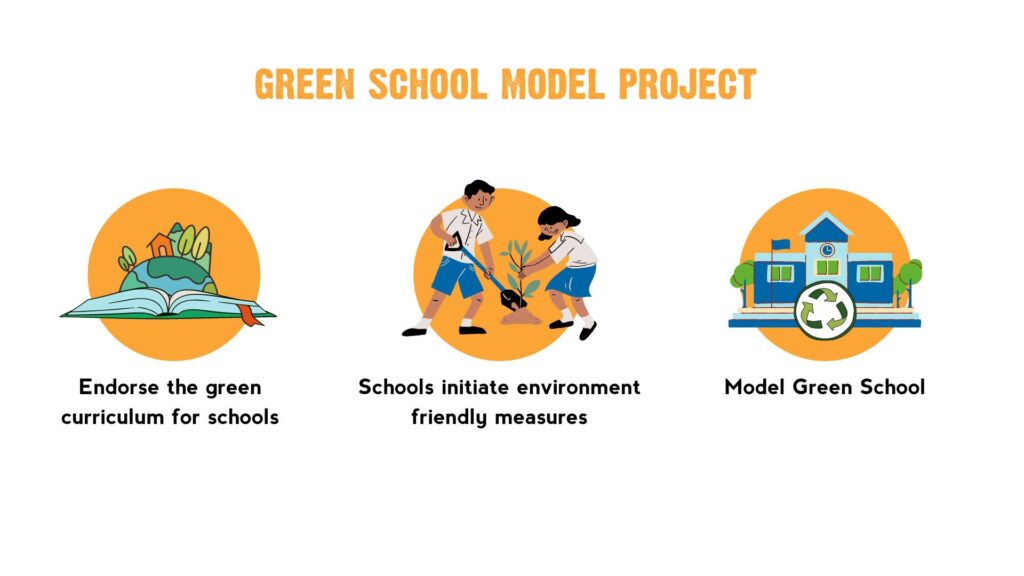
Green School Model PROJECT
GREEN SCHOOL INITIATIVE
The project focuses on adopting environmentally friendly sustainable practices across 50 schools in Ratanagar municipality in Bagmati Province.
Nepal is considered one of the top five most vulnerable countries to the adverse effects of climate change because of its hilly, mountainous, and fragile landscapes. While the Government of Nepal focuses on tackling the challenges of climate change through different planned adaptation and mitigation initiatives, their capacity and reach remain limited, and almost all communities experience the adverse effects of climate change today. The National Planning Commission (NPC) of Nepal regards sustainable development as the most important agenda for Nepal as it is highly dependent on its natural resources and human capital for its development whilst overcoming climate change and its diverse geographical challenges. In both aspects, the country is struggling. However, with the transition of Nepal’s Government setup into a federal system, the empowerment of the local governments through municipalities opens an array of possibilities for mainstreaming directives, like the Green School Program 2018, effectively if provided the right support at the right time. A good role model in one municipality can very well be adopted and replicated in all 753 municipalities with 35600 schools across Nepal with right strategies.

Together with local partner Wildlife Conservation Nepal (WCN) the project aims to establish a green school model- an amalgamation of different scattered environmental education practices for the first time- mainstreaming the Green School Directive 2018 through the partnership with Ratnanagar Municipality- municipality that is adjacent to the jungles of the national park. This pilot aims to consolidate all the environmental education programs in their current forms in the schools in an overarching and a comprehensive education model based on a relevant directive of the Green School Program, of the central government, familiarize the Municipality with the concept through capacity building approaches, so that they will eventually adopt it as their own program-mainstreaming the concept of Green School for the first time in Nepal.
There are three major outcomes in focus to promote environmental awareness and sustainable practices in schools. The first outcome aims to have the municipality endorse a green curriculum for schools as part of the local curricula and school system. The second outcome focuses on implementing environment-friendly measures in all 50 schools within the municipality. Lastly, the third outcome involves selecting one pilot school to introduce the green curriculum, establish an environment committee, and initiate environmentally friendly projects and practices. This will serve as a model for other schools to follow.
